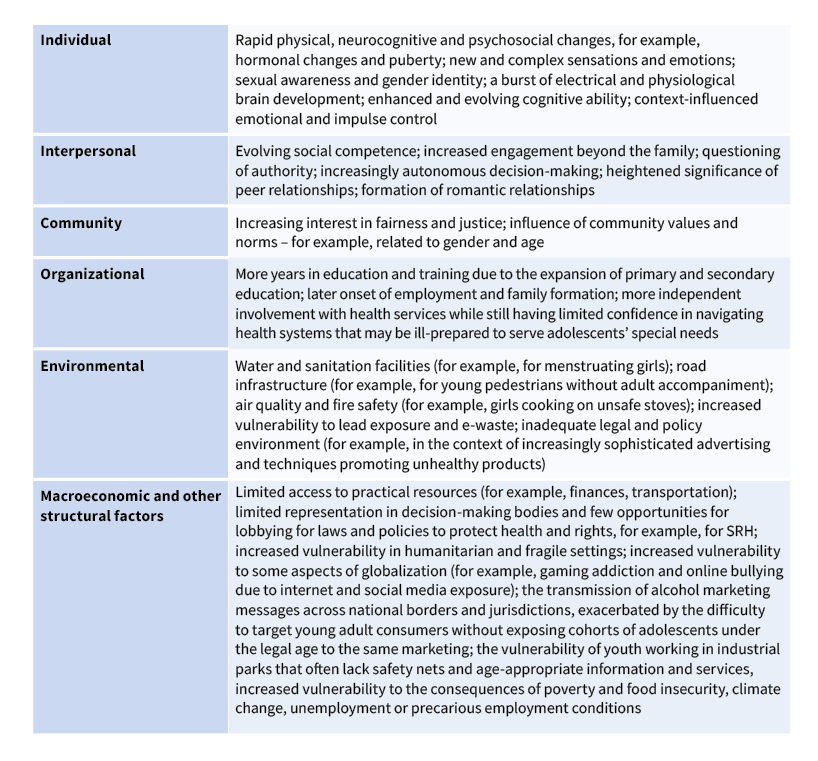
The 1.3 billion adolescents in the world today are extremely diverse, differing not only in age but also in developmental stage as well as in culture, nationality, wealth, education, family, urban/rural residence and many other ways across all societies and settings. Nonetheless, adolescents share key developmental experiences as they transition from childhood to adulthood, which make adolescence a unique formative stage of human development. This stage is characterized by rapid physical growth, hormonal changes, sexual development, new and complex emotions, an increase in cognitive and intellectual capacities, moral development and evolving relationships with peers and families.
Adolescents are not simply old children or young adults. The many determinants that influence human health take particular forms and have unique impacts in adolescence.
There is the belief that adolescents do not think in a mature way about this theme [health and well-being]. When in reality everyone’s opinion should be taken into account.
Examples of factors at different ecological levels that have unique impacts in adolescence (click on table to enlarge)



